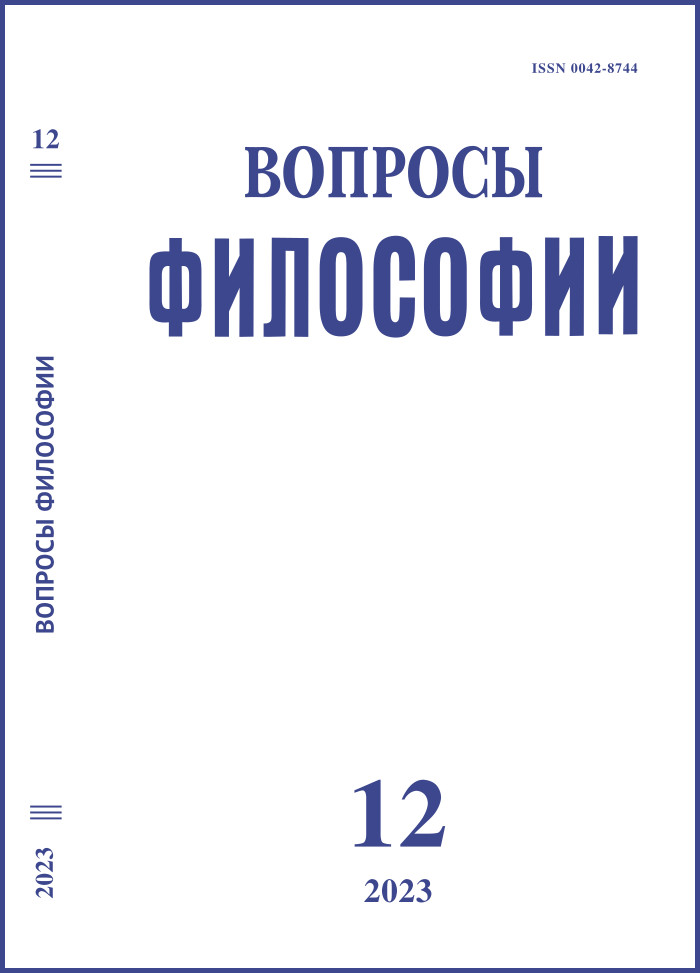Zhinkin and Wittgenstein: Reality and Language
DOI:
https://doi.org/10.21146/0042-8744-2023-12-19-24Keywords:
Zhinkin, reality, Wittgenstein, language, sound, signs.Abstract
The article analyzes the work of N.I. Zhinkin devoted to language as a communicative system. Zhinkin’s work is interesting because, in addition to the usual categories important for the philosophy of language, he addresses such a phenomenon as sound, that is, he offers to study the language in its entirety, including sounding speech, and builds a system that allows you to logically describe its structure. In this study, the basic provisions of Zhinkin’s work are identified and the interpretation of complex or non-obvious elements is given. It is noted that its structure, some elements of methodology and partially its content are related to L. Wittgenstein’s Logical and Philosophical Treatise. An attempt is made to explain concepts significant for the correct understanding of Zhinkin’s article (such as sound, noise, background, vertical substitution, algorithm and others), in particular, involving concepts of physics (the second principle of thermodynamics and its consequence – entropy). Based on the analysis of the main structural components of Zhinkin’s article, the study focuses on ideas that have correlations with some of Wittgenstein’s statements set out in his work. The key attention is paid to the term reality used by Zhinkin (wirklichkeit), its explanation and role in describing the structure of the language. It is shown that despite the difference in terminology, it is possible to establish similarity (if not identity) between Zhinkin’s wirklichkeit and Wittgenstein’s welt. It is hypothesized that Zhinkin’s approach, taking into account the correct interpretation, assumes the possibility of a complete description of reality in language, including those areas that Wittgenstein would call lying outside reality, as related to the mystical.

